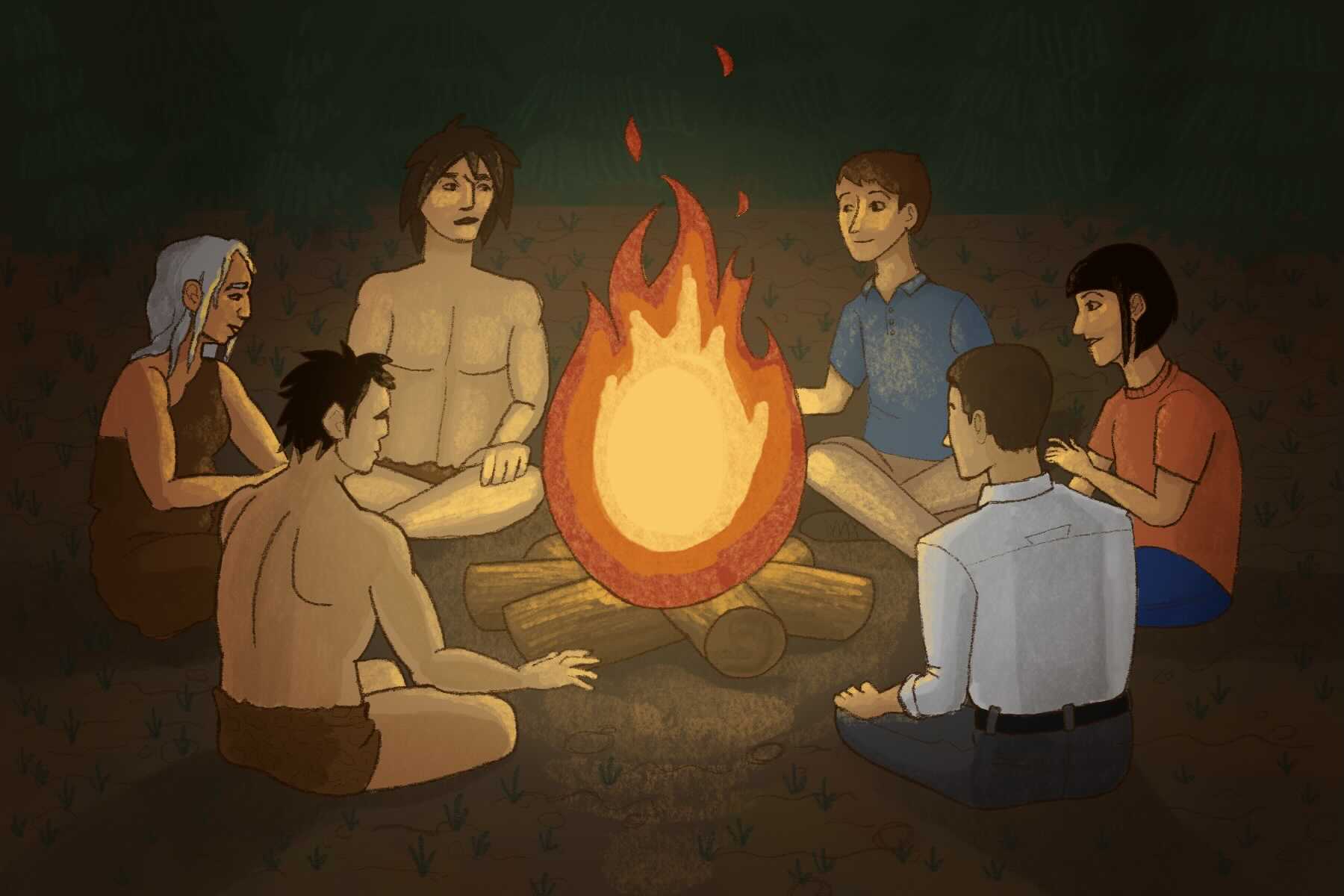Most people would like to think that they are in control of their own behaviors and actions. But did you know that many of our emotions, thoughts and responses are influenced by the decisions made by our ancestors, early human beings as far back as the Pleistocene era? Evolutionary psychologists believe that some of our behaviors are driven by instinctual or subconscious impulses formed by adaptive changes that occurred during evolution.
Through a process called natural selection, human traits that are deemed beneficial and have been proven to be advantageous in a person’s life allow them to reproduce more successfully; therefore, these traits will be present in their offspring, so on and so forth. Due to evolution and natural selection, traits that were beneficial in early humans are now present in us, the surviving generation. This concept is studied in evolutionary psychology. A mix between psychology and biology, evolutionary psychology strives to explain human behavior through the perspective of evolution.
Over several generations, human brains were directed by natural selection to make adaptive changes and act in specific ways to solve problems. Our ancestors had many obstacles to face in a violent and chaotic terrain. Both the flora and fauna around them posed threats and they had to develop solutions to the problems they faced to survive, allowing them to produce offspring. No matter how far we advance as a society, we will always be related to these early humans, carrying the traits that were useful for survival at that time. Things like how we respond to fear and our ability to lie well may be lingering byproducts of this evolution. Let’s take a look at these behaviors that are influenced by our relation to cavemen.
Fears and Phobias
Many theories attribute the development of fears and phobias to evolution. Fear occurs when there is a threat of harm, whether real or imagined, and phobias are very intense reactions to the sight or thought of a situation or thing. Humans are more likely to have fears to immediate threats rather than long-term ones. Evolutionary psychologists believe humans are biologically primed to develop certain types of fears at certain times in their life. This is a protective feature of our evolution designed to protect us throughout our lifespan. The majority of fears and phobias are developed before the age of 12. Because our ancestors were rewarded for responding to certain things in a reactive way, our dispositions and fears now can be less logical and more instinctual.
Evolution can explain our nearly universal fear of snakes and spiders. Although many species of these creatures can be harmless and nonpoisonous, we still snap to attention and react in an explosive way when spotting them because our evolution tells us it’s better to be safe than sorry. Avoiding the effects of a bite from these animals was a matter of life and death for cavemen in our early human years so it would make sense that the ones who feared and avoided them were able to live longer and reproduce. This is why psychologists believe a fear of snakes and spiders may be innate. Sometimes even young children who have never had an encounter with such animals may respond in a frightened way due to this instinct.
We are not the only mammals that show a fear of snakes. Similar to us, rhesus monkeys have a strong fear of these reptiles and have much difficulty extinguishing these fears even with desensitization. When in the presence of these creatures, primates have strong reactions and can learn to fear these creatures in minutes, without obtaining knowledge of this fear from family members. It’s not surprising that so many mammals have these innate fears: They proved crucial for mammalian survival and there are many benefits to avoiding snakes and spiders even today.
Lying
From little white lies to fantastical fibs, experts say we lie between 20 to 200 times a day. Even babies use deception with fake crying and learn concealment by the age of one. But did you know that there might be an evolutionary reason for why we lie? Research suggests that deception eased human interactions for ages and may have been crucial for successfully working with others. Being a “part of the group” has so many physical, biological and social advantages that lying as an act of self-preservation can become critical in order to maintain relationships in society. Scientists say that lying increased the chance for our cavemen ancestors to form groups, get food and mate. Our ability to not just lie but do it effectively may have evolved as a result of our cooperative nature.
Besides humans, other animals use lying as a means for survival as well. Male spiders give empty gifts to potential mates, bacteria overproduce signals to encourage cooperation from others and monkeys use deception as a tool when necessary. A study showed that the more cooperative a group of primates were, the higher the chance of deception. Whether we evolutionarily use lying as a means to appear more favorable, gain trust or flatter, we are trying to better cooperate with others, which can prove to be beneficial.
Although we are largely unaware of the underlying process, evolution plays a huge role in the reasoning behind our behaviors, driven by the subconscious and instinctual means of our past. Our reaction to our fears and our tendency to lie well are all behaviors that may seem primitive, but these traits are what helped humans survive and reproduce for generations, which in turn allowed us to exist in the first place. We can become more aware of our behaviors when we understand the role evolution plays in determining them, but our cavemen ancestors of the past will always have a major influence on our lives, no matter how far we stray from the cave.
















